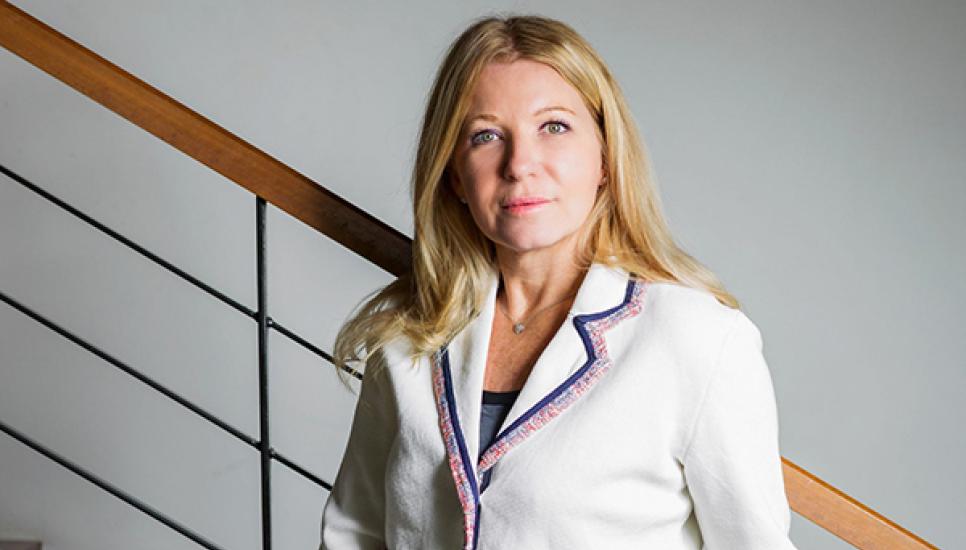The risk of addiction in family businesses

Addiction can be incredibly difficult to manage in any family dynamic, but when it shows up in a family business, the stakes are even higher.
But by understanding why and how addiction shows up in family businesses and learning the patterns of behaviour in individuals who misuse drugs and alcohol, families will be better equipped to support the addict out of their illness.
Why are young people in family businesses at a higher risk of addiction?
There’s a substantial amount of research around how and why addiction shows up in people of different socioeconomic classes. Education, parental education and income are known to be unique moderating factors in substance use and the growing rate of addiction.
It’s also well documented that, although drug use trends and rates vary from year to year, substance abuse remains a persistent and pressing problem for many young adults. In fact, research shows that one-in-11 young adults is a heavy drinker, one-in-ten young adults has an alcohol-use disorder and one in seven young adults has a substance-use disorder.
Combine these two factors and we start to get an idea of why young people in affluent families are at a higher risk of addiction. But let’s dive deeper into the story.
For one thing, there is a huge amount of pressure for young members of family businesses to not just achieve in the moment but to continue the pattern of achievement that’s been built by the generations before them. If an individual has a family business and has acquired wealth built up over generations, there’s a pressure not just to look after what the family has built but to also increase that wealth and make sure it’s there for generations to come.
Frequently, when an individual is aware that substantial funds have been spent on them (for example, on their education or provided as a start-up investment), there’s a belief that they somehow need to protect that money and pay it back to the family. This is yet another layer of expectation to carry on one’s shoulders.
To complicate matters, we know that genetics and environment are very important in addiction - I’m often asked whether it is nature or nurture that drives addiction. The truth is, all nature becomes nurture because the environment changes the expression of genes and the expression of the way our brain development progresses - also called neurogenesis.
In addition, young people in ultra-high net worth families often have parents who demonstrate a more permissive parenting style. Now, there is no right or wrong way to parent, but this style of parenting does lend itself to a more tolerant attitude towards alcohol and drugs. Often young people in ultra-high-net-worth families are introduced to high levels of socialising with an integration of generations with drugs and alcohol at a much earlier age and with much more regularity than other families.
It’s worth noting at this point that there is zero evidence that shows allowing children and young people to drink at home from an early age gives them a resilience to alcohol. In fact, it is quite the contrary. The earlier the children are exposed to alcohol and drugs, the earlier they are likely to experience problematic usage with those substances.

The unique set of challenges in a family business
We know that being a part of a family business brings a completely unique set of circumstances and one of the most problematic is choice. On the surface, having choice feels like the ideal - along with money, many people dream of the freedom and liberation that comes with choice.
However, it can be really challenging for young people to grow up in a family system where choice is abundant because young people’s brains are not yet developed and therefore, they do not have the capacity for higher order thinking and to make good choices. The pressure for a young person who has to make decisions in an adult world can sometimes become too much.
Those with a higher level of access to funds can become more predisposed to addiction because they have the freedom to make choices to engage in, and regularly immerse themselves in, situations that may be higher risk. Ultimately, this helps to normalise the use of substances like drugs and alcohol in a social setting.
As much as people perceive the ‘cocaine and champagne’ lifestyle to be about glamour and fun (that’s certainly what Hollywood has taught us anyway) the reality is that it’s none of those things when an individual moves through the revolving door of addiction.
No one starts off using alcohol and drugs thinking they are going to end up with an addiction. However, people do chase more of what they’ve enjoyed and can quickly see substances as a gateway to never-ending fun. The problem is that the individual then continues to chase the high, feeling they need to take more of the same thing in order to feel more of the same way - and that’s where the tolerance level begins to alter.
This helps to explain what creates cycles of addiction within families. When alcohol is served with every dinner, it may only be a small amount but the tolerance level gradually increases and an individual then seeks more to feel the same enjoyment they have before.

The individual and financial risk of addiction
When people think of alcoholism, they quite often envisage an old man, sitting on a park bench with a can of extra-strong beer. But addiction does not discriminate and it is not fussy about who it affects. The danger is that many people, particularly those in ultra-high net worth families, step through the revolving door of addiction without even noticing it’s happened.
And the signs and symptoms of addiction are not always easy to spot. Quite often, individuals fear being found out and, as a result, will actively hide their problems from others, particularly when they relate to drugs and alcohol. But there are many signs and symptoms to look out for. The more someone plummets into addiction the more you will see them move away from others. They tend to live and operate alone with substances like alcohol and drugs becoming their friends.
One sign is that an individual feels they need more of the same substance in order to feel the same level of high. People may also start to have withdrawal symptoms when they are not using or not able to get hold of a substance, such as feeling irritable or uncomfortable. In addition, an individual may experience a preoccupation with a substance of choice and dedicate a lot of time to planning when they’ll have their next hit - all of which can encroach on day-to-day functioning.
Within a family business system, neglect and addiction go together hand in hand. An individual who is using alcohol or drugs in a problematic way, may begin to neglect some of their jobs and responsibilities. Not long ago, the father within a family I worked with failed to put stock loss on a big trade whilst drinking over lunch and arrived back in the office to an enormous loss which shocked the internal workings of the family.
It is difficult for most people to reach out for support with addiction, but this feeling can be exacerbated for those individuals at the top of the family business who may feel they have no one to turn to and also fear the repercussions their actions could have on many other people. This is also common in celebrity culture because the damage caused is not just here for today and tomorrow, it can perpetuate for a very long time.
The risk of exposure is ever present for individuals with addiction in family businesses. There will likely be concern about the illness - and any questionable events around that - being reported in the media, which could carry a huge amount of shame and guilt for both the individual and the family. The financial cost of addiction can also be daunting, especially if the individual is in a prominent position. In addition to the risk and consequence of duty neglect, there could be a bigger impact on the bottom line as clients and customers who do not want association with the company pull deals, brands cut sponsorships and customers boycott the business.
Needless to say, addiction doesn’t just have the potential to shred the individual and family, but the wider business ecosystem, too.

How to manage addiction in a family business
There’s a lot less empathy for mental illness in people who have wealth. Society as a whole is not as empathetic or charitable to those perceived to have it all. Let’s be clear - money in no way discounts the pain and suffering a family experiences with addiction, whether that’s the head of the business or a younger employee. I quite often come across people who dismiss the pain and suffering of those in a higher socioeconomic background, and frankly I find the lack of compassion to be disturbing.
And it’s not just others’ perception that can be a barrier. Oftentimes, people in ultra-high-net-worth families believe they are protected in some ways which can result in things getting much worse before anyone takes notice. Living with a layer of financial protection does not mean you have a protective layer of resilience, too. In fact, young adults in wealthier families are often very dependent and need a lot more support and assistance to function than others.
So, what can be done for family addicts? Acceptance is said to be one of the first and most important points in order to move on from addiction within a family system - and that includes acceptance from the entire family. It can be hard to accept that another family member has something that’s gone beyond mildly problematic. Sometimes the word ‘addiction’ can be too much for families to process.
Addiction in any situation needs to be managed with incredible care. People often talk about needing to hit rock bottom in order to find some sort of recovery. However, this is not an idea that I believe in. I do not believe people need to reach the depths of despair to be offered a hand out. I believe conversations need to be opened much earlier on, even knowing that they might not be accepted.
Moreover, it’s important to understand that treatment doesn’t have to be the start of recovery. It is possible for the family system to begin recovery without the protagonist being involved. That could be family and business partners coming together and planning how to manage the problem. Bringing a culture of recovery into the family business is really important. Understanding that the individual does not need to be thrown aside, but planning a way to move forward and around it together, while getting them the help they need, is entirely possible.
Addiction is very difficult to treat alone. It’s not usual that someone will be able to get out of it without the help of others. But a united family business that manages the situation with care and compassion can create the support system an individual needs to recover.






